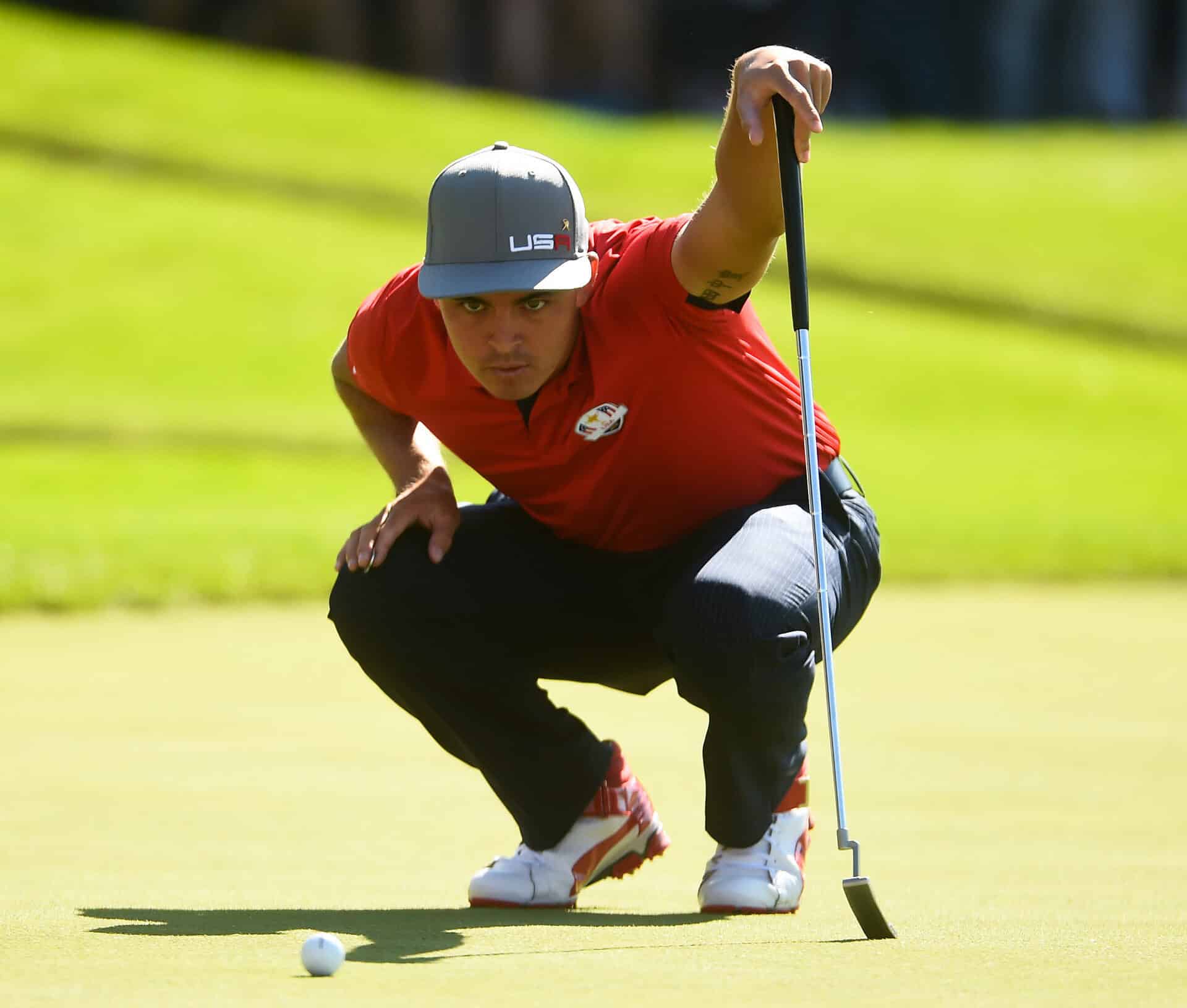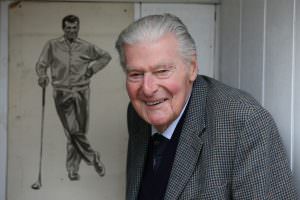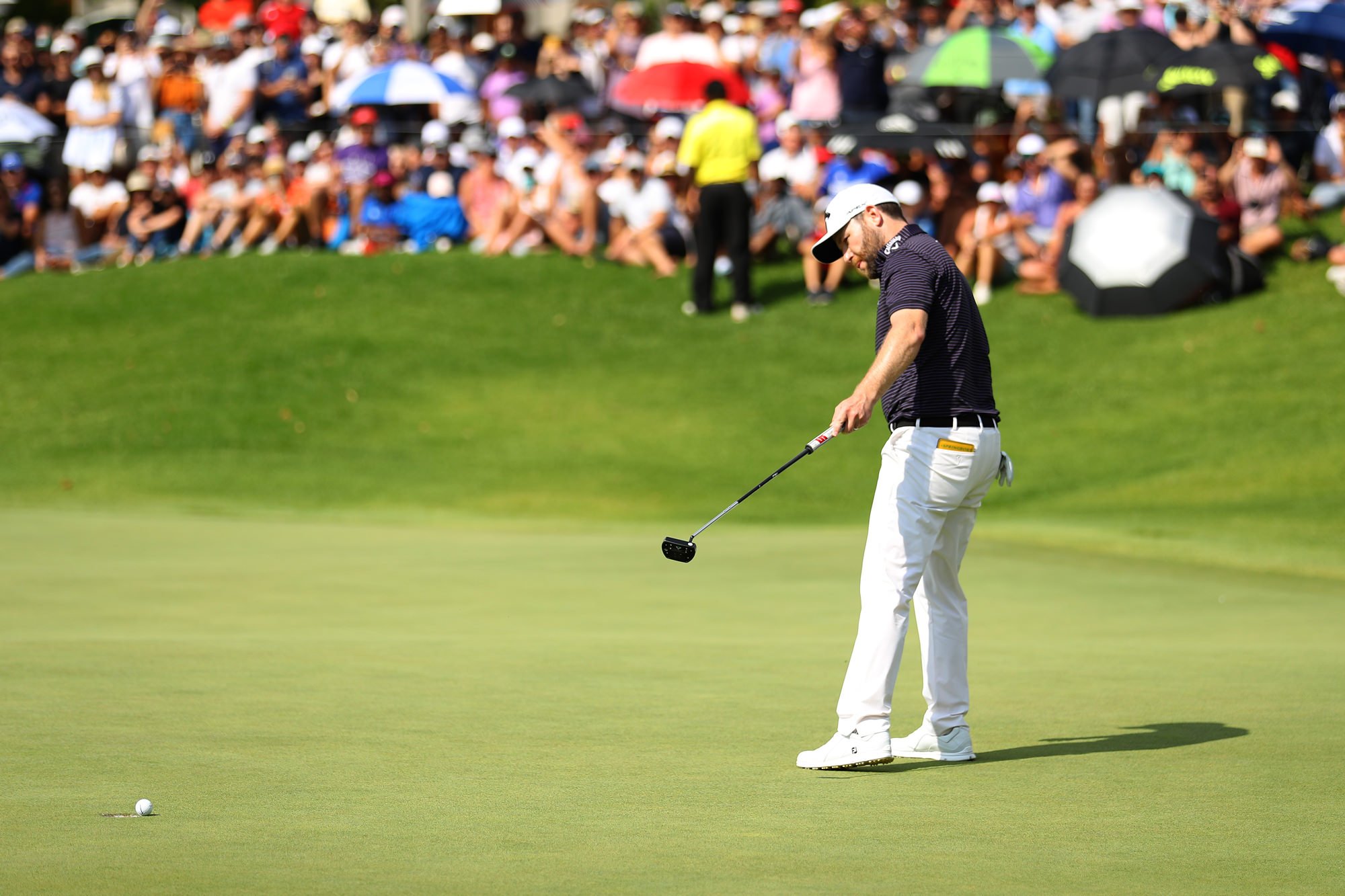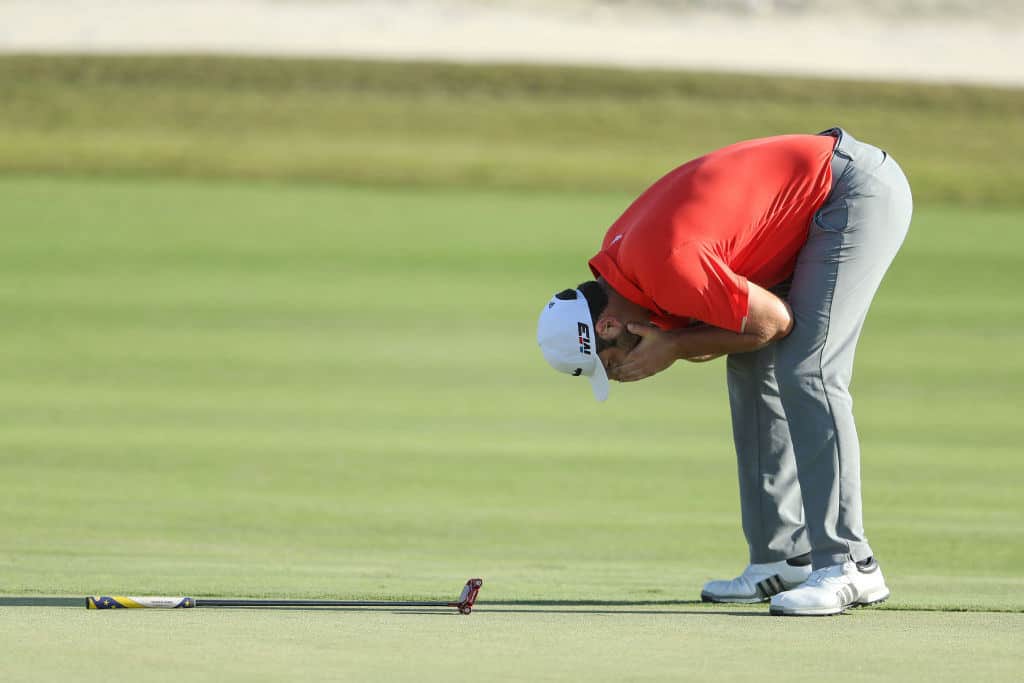
Keep calm and carry on – it will improve your golf and life
I have always felt very lucky to do what I do for a living. To coach a sport I love and get the chance to work with players to see what is possible with their game, both with individuals and in groups.
I really enjoy presenting my Mind Factor workshops up and down the country where I get chance to share some of the ideas with club members that I have worked on with PGA Tour and European Tour players over the past 25 years or so.
However, increasingly one of the major downsides is the travel aspect. In particular the amount of time in my life that has ebbed slowly away as I have been stuck in stationary traffic surrounded by cones in endless miles of roadworks. At times it seems like the entire motorway network in this country is one long stretch of cones as we aim to embrace the concept of ‘smart motorways’.
I often travel back home from workshops late at night and the sense of rage that often wells up in me after a long journey gets towards the finish line and then I see the dreaded ‘M6 closed’ sign and know what should have been a 30 minute conclusion to my driving adventure may well now become another hour plus. There is something unique about sitting on motorway gone midnight going nowhere. A mixture of tiredness and anger late at night can be a very potent cocktail resulting in corresponding spike in my cortisol levels.
First world problems, I know, but these situations often remind me of how easily we can be ‘triggered’ and how that relates to our golf.
How does the game ‘trigger’ you?
Can you be sailing along blissfully with your medal round, everything well in your world and then suddenly the fourball in front starts to lose golf balls and you spend your time on the tee placing your hands on your hips in classic ‘teapot’ pose fuming at your lost momentum?
Or the time you hit a great drive and then an even better 4-iron right into the middle of the green, only to three-putt? You just cannot believe how unfair the game is, especially as your playing partner has just hacked his way down the hole before sliding in a 20-footer for par!
Our emotional rip chord is yanked and we descend into a sea of lament as yet again a round that looked so promising at the start gets away from us.
How many rounds can we look back on that have been ruined not by circumstances but our reaction to those circumstances?
Tips to stay calm on the golf course
For the good of my health, and in particular my blood pressure, I have come to realise that in those M6 moments I have a really clear choice to make. I can either let an external situation that I have no control over make me feel very bad or I can choose to respond differently and respond in a way that may not make me happy but does at the very least keep me neutral and away from the downward spiral of self-induced misery.
The concept is very simple but incredibly important for our game and our life. We can either react or we can respond. We can react to slow play like a spoilt child who has been taken out of the sandpit, or we can respond by choosing to put our attention in a more useful place for the presumed goal of playing the very best golf we can.
It is key to ask yourself the question before you play: Am I going to react or respond today? Because one thing is for certain, as certain as there will be more traffic cones to come on my M6 journeythat the golf course will provide you with numerous situations and that anger and frustration can and will take over if you continue to react. Anger at golf makes us very stupid and the tension created in our bodies as a result very rarely helps to swing the club in any other way than badly.
So much of what we do on a daily basis is a result of auto pilot responses as we allow circumstance to dictate how we feel.
As crazy as it may sound, the next bout of slow play or the next period of being held up on the course can be an opportunity to change your habitual responses and to take the opportunity to respond to a situation in the best possible way, a way that allows you to play the kind of golf you are actually capable of.
So if you see me stuck in traffic at some point and you can observe the steam coming out of my ears, please sound your horn at me an remind me that I am letting a bunch of cones make me feel bad for no real reason at all.
About Karl Morris
Karl Morris is a European Tour coach and founder of The Mind Factor.
He co-wrote The Lost Art of Putting with Gary Nicol, available on Amazon.
You can read more of his columns here.
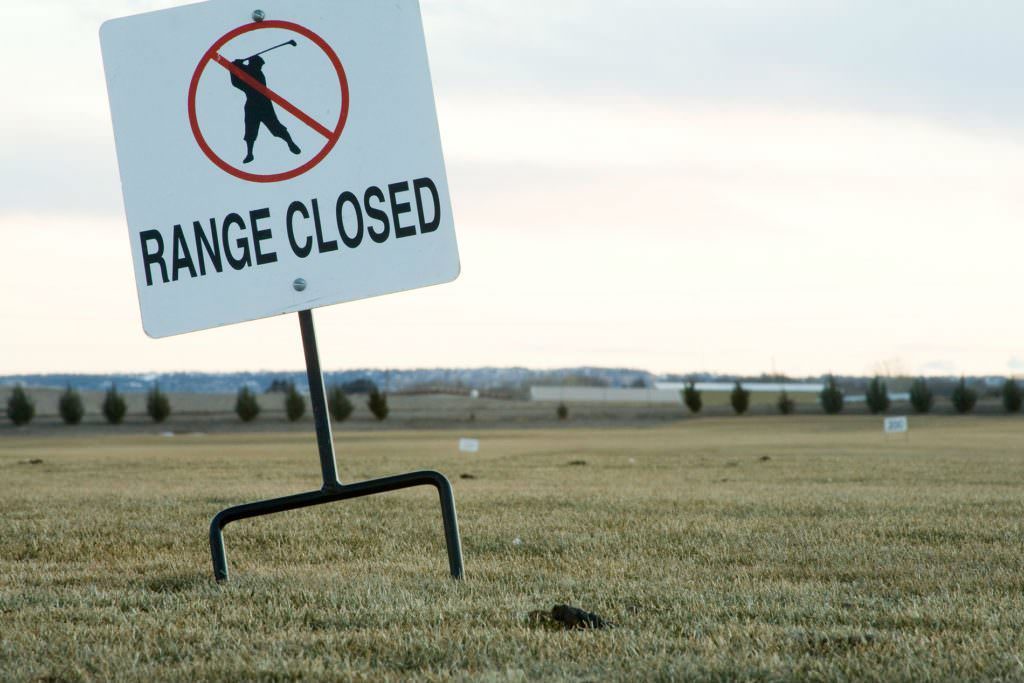
Train to be a golfer: Why the range isn’t always the answer
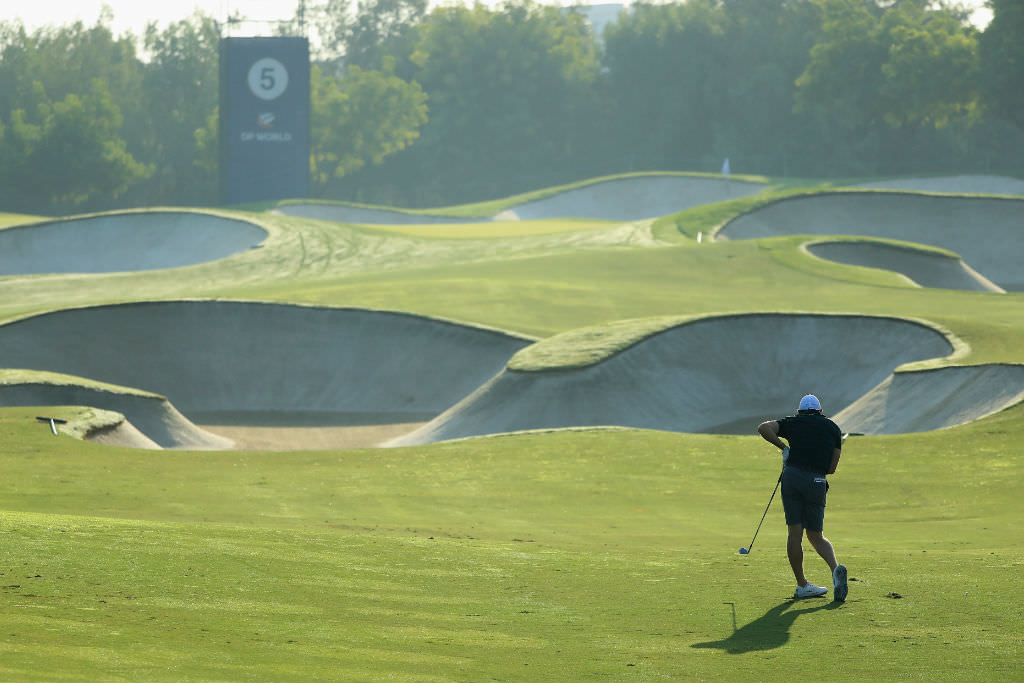
Try playing ‘no pin golf’ to improve your game
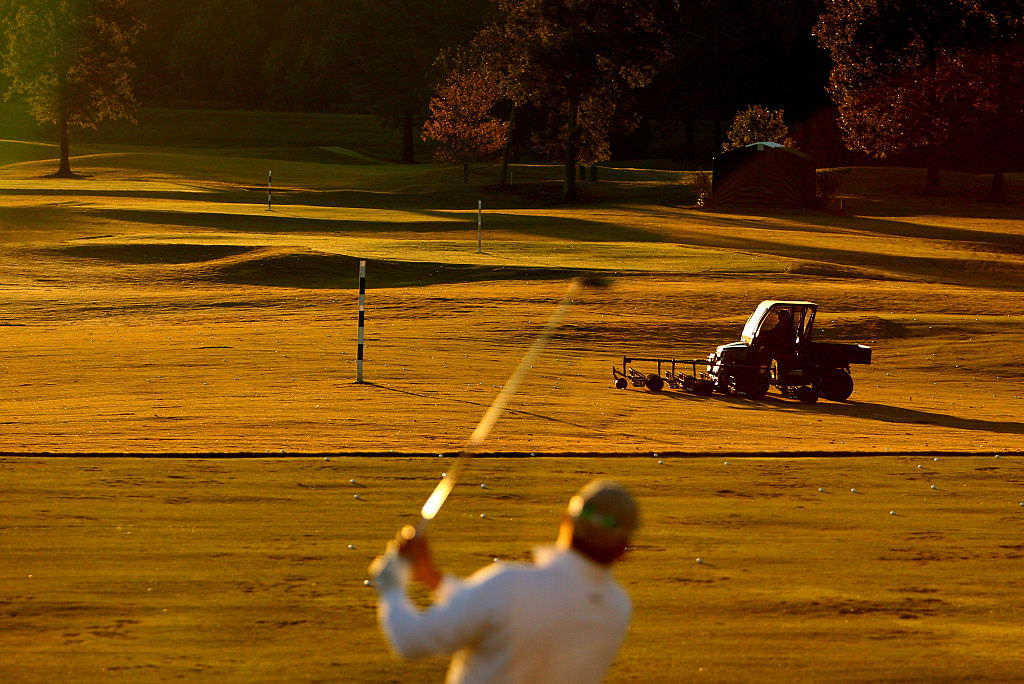
Want 2019 to be your best year ever? Take action now
Alex Perry

Alex has been the editor of National Club Golfer since 2017. A Devonian who enjoys wittering on about his south west roots, Alex moved north to join NCG after more than a decade in London, the last five of which were with ESPN. Away from golf, Alex follows Torquay United and spends too much time playing his PlayStation or his guitar and not enough time practising his short game.





